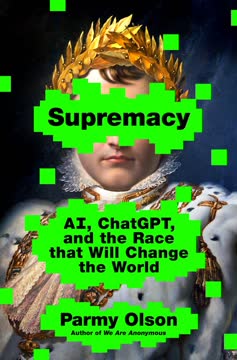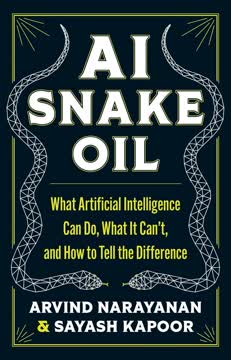Key Takeaways
1. The KGB Cultivated Trump Over Decades
The ascent of Donald Trump to the presidency of the United States in 2016 did not take place in a vacuum, nor did his grab for unprecedented executive power that far transcend democratic norms.
Long-term operation. The book argues that Trump's rise to power was not a sudden event but the culmination of a decades-long cultivation by the KGB and its successors. This involved identifying and nurturing individuals who could be of use to Russian interests, even without them being fully aware of the extent of the operation. The KGB's patience and long-term vision are contrasted with the short-term focus of Western intelligence agencies.
Sequential operations. The process wasn't a single, meticulously planned scheme but a series of interconnected operations that built upon each other over time. These operations exploited vulnerabilities in the American system, including lax campaign finance laws, real estate loopholes, and the power of social media. The Russians patiently developed assets and data, understanding that their value might not be realized for years or even decades.
Exploiting vulnerabilities. The KGB and its successors methodically studied various components of the American body politic and the economic forces behind it—campaign finance, the US legal system, social media, the tech sector, K Street lobbyists, corporate lawyers, and the real estate industry—and exploited every loophole they could find. In the end, they began subverting one institution after another that was designed to provide checks and balances to safeguard our democracy, including our elections, our executive branch, the Department of Justice, and the intelligence sector.
2. Kislin: The Alleged "Spotter" Who Opened the Door
For all that, one rather banal, obscure, and incidental detail in the development of the Grand Hyatt may be the key to unraveling the mystery of Donald Trump’s ties to Russian intelligence.
Joy-Lud Electronics. Semyon Kislin, co-owner of Joy-Lud Electronics, a store catering to Soviet diplomats and officials in New York, allegedly served as a "spotter" for the KGB. The store's popularity among Soviets stemmed from its ability to provide electronics compatible with Soviet technical standards. This created a unique opportunity for the KGB to interact with and assess potential assets.
The Grand Hyatt deal. Trump's purchase of television sets for the Grand Hyatt from Joy-Lud Electronics is presented as a key early interaction. While seemingly innocuous, this transaction allowed Kislin to assess Trump's personality and potential usefulness to the KGB. The fact that Trump paid Kislin on time, despite his reputation for not paying vendors, is highlighted as a sign of Kislin's influence.
Kislin's background. Kislin's background as a successful businessman in Odessa, Ukraine, is examined, suggesting that he likely had connections to the KGB to operate his business. His emigration to the United States and subsequent success in the electronics business are viewed as part of a larger KGB operation to establish assets in the West.
3. Trump's Personality Made Him a Prime Target
Trump was a dream for KGB officers looking to develop an asset.
Vulnerability to flattery. Trump's vanity, narcissism, greed, and ignorance made him an ideal target for KGB recruitment. His susceptibility to flattery and desire for recognition were exploited to cultivate a relationship. This assessment aligns with those of former CIA officers who viewed Trump as easily manipulated.
Money as kompromat. While traditional kompromat (compromising material) might not have worked on Trump due to his shamelessness, the money trail connecting him to Russian intelligence through money laundering was a more effective form of leverage. This financial entanglement created a dependency and compromised his decision-making.
The long game. The KGB's approach was not to immediately recruit Trump as a spy but to cultivate him as a long-term asset. This involved building a relationship, providing opportunities for financial gain, and gradually influencing his worldview. The ultimate goal was to have someone in a position of power who would act in Russia's interests.
4. The UN: A Spy Nest and a Meeting Place
The UN was a paradise for spies, a true oasis, because diplomatic cover gave the KGB free run of the place, thanks to UN rules that banned CIA and FBI personnel from the premises.
Soviet Mission to the UN. The Soviet Mission to the United Nations was a hotbed of espionage, with a significant portion of its staff being KGB officers. This provided a convenient base for intelligence operations and recruitment. The UN's diplomatic cover made it difficult for Western agencies to monitor Soviet activities.
Natalia Dubinina. Natalia Dubinina, daughter of Soviet ambassador Yuri Dubinin, worked at the UN's Dag Hammarskjöld Library and allegedly served as a KGB operative. Her role at the UN provided her with access to information and opportunities to interact with potential assets, including Donald Trump.
Dubinina's account. An interview with Dubinina published after Trump's election is analyzed as a potential active measure by Russian intelligence to disguise the true origins of Trump's ties to the KGB. The inconsistencies and inaccuracies in her account are highlighted as evidence of a cover-up.
5. The Spy Wars and the Hunt for Moles
The difference between counterintelligence and criminal investigations is not some minor legal distinction. It’s fundamental.
The Year of the Spy. The 1980s were a period of intense espionage activity, with numerous Soviet spies being uncovered and expelled from Western countries. This created a climate of paranoia and suspicion within the intelligence community. The hunt for moles within the CIA and FBI consumed resources and paralyzed operations.
Aldrich Ames and Robert Hanssen. The cases of Aldrich Ames and Robert Hanssen, high-ranking officials who spied for the Soviet Union, highlight the devastating impact of moles on national security. Their betrayals compromised countless operations and led to the deaths of American assets.
Counterintelligence vs. criminal investigations. The distinction between counterintelligence and criminal investigations is emphasized. Counterintelligence aims to thwart an adversary's spying, while criminal investigations seek prosecution. The Trump-Russia scandal was primarily a counterintelligence matter, but it was often treated as a criminal probe, leading to a failure to address the underlying national security threat.
6. Barr's Role in Obstructing Justice
Sometimes the most egregious and corrupt wrongdoings are perfectly lawful. And that is particularly true when it comes to intelligence operations.
The Mueller Report. The Mueller Report's limited focus on counterintelligence is criticized. The report's failure to fully investigate Trump's ties to Russia and the Russian Mafia is seen as a missed opportunity to address a grave national security threat.
William Barr's actions. William Barr's actions as Attorney General are scrutinized, including his downplaying of Russian interference, his defense of Trump's actions, and his efforts to undermine the Mueller investigation. His interpretation of the "unitary executive" doctrine is seen as granting Trump unchecked power and undermining the rule of law.
The new Catholic right. Barr's ties to the newly emergent Catholic right, with its connections to Opus Dei, are explored. This connection suggests a potential alignment of religious authoritarianism and theocratic nationalism with Trumpism, posing a threat to the US Constitution.
7. Maxwell's Dark Web: Sex, Spies, and Kompromat
This was a war for the soul of America. And at the heart of it all were seemingly simple questions that had never been answered.
Jeffrey Epstein's operation. Jeffrey Epstein's pedophile sex-trafficking operation is examined as a source of kompromat for the world's richest and most powerful men. The operation's potential links to Russian intelligence are explored, suggesting that it may have been used to infiltrate Silicon Valley and the tech sector.
Ghislaine Maxwell's role. Ghislaine Maxwell's role in facilitating Epstein's operation is highlighted. Her connections to high society and her ability to attract young women made her a valuable asset.
Kompromat and influence. The use of kompromat to influence powerful individuals is discussed. The possibility that Russian intelligence may have obtained compromising material on American elites through the Epstein-Maxwell operation is raised.
8. The New Catholic Right and the Unitary Executive
In effect, as attorney general, Barr, a leading figure in the newly emergent Catholic right—with its ties to Opus Dei, a mysterious fringe sect with roots in fascist Spain—was bringing in a new strain of religious authoritarianism and theocratic nationalism to join forces with Trumpism on their way to collision after collision with the US Constitution.
Opus Dei's influence. The influence of Opus Dei, a conservative Catholic organization, on American politics is examined. The organization's ties to figures like William Barr and its promotion of a strict interpretation of the US Constitution are seen as contributing to a shift toward religious authoritarianism.
The unitary executive theory. The doctrine of the "unitary executive," which grants the president broad powers, is discussed. Barr's advocacy for this doctrine is seen as enabling Trump to expand executive power and undermine the rule of law.
Theocratic nationalism. The emergence of theocratic nationalism, a fusion of religious and political ideologies, is explored. This movement's potential to undermine the US Constitution and democratic norms is highlighted.
9. The Russian Mafia's Role in Trump's Finances
For the most part, the American media covered the Trump–Russia scandal as if it were a series of major criminal inquiries—following the investigations, prosecutions, and trials of Paul Manafort, Roger Stone, Michael Cohen, and other Trump associates; the Mueller Report; Trump’s impeachment and no-witness acquittal in the Senate; and all the rest.
Brighton Beach connections. The influx of Soviet émigrés into Brooklyn's Brighton Beach in the 1970s brought with it not only cultural changes but also the rise of the Russian Mafia. These mobsters engaged in various criminal activities, including money laundering, which created a need for real estate developers willing to overlook the source of funds.
Trump Tower and money laundering. Trump Tower became a hub for Russian Mafia activity, with mobsters purchasing condos to launder money. The all-cash sales and lack of scrutiny allowed for the flow of illicit funds into Trump's businesses.
Bayrock Group. The Bayrock Group, a real estate development company based in Trump Tower with ties to the Kremlin, played a key role in franchising Trump condos. This model allowed Trump to profit from his brand without investing his own capital, further entangling him with Russian interests.
10. The Power of Kompromat and the Art of Deception
That was kompromat. That was how it worked. The press covered the event as something that was completely normal. In fact, nothing illegal was taking place. Nevertheless, Russian intelligence had essentially hijacked Trump’s foreign policy in plain sight and nobody noticed.
Definition of kompromat. The Russian term "kompromat," meaning compromising material, is defined and its significance in intelligence operations is explained. Kompromat can be used to exert influence, blackmail individuals, or discredit opponents.
Exploiting legal loopholes. The KGB and its successors are adept at operating within the law, exploiting loopholes and lax regulations to achieve their objectives. This allows them to engage in intelligence operations without necessarily committing crimes.
The art of deception. The book emphasizes the importance of understanding how intelligence operations are designed to operate within the law. This requires looking beyond individual crimes and examining the broader context of intelligence activities.
Last updated:
Review Summary
American Kompromat explores Trump's alleged ties to Russia, tracing back to the 1980s when the KGB supposedly cultivated him as an asset. The book details Trump's business dealings with Russian oligarchs, his relationship with Jeffrey Epstein, and the role of Opus Dei in American politics. While some reviewers praise Unger's research and find the book revelatory, others criticize the reliance on circumstantial evidence and speculation. The book is seen as both informative and controversial, offering a complex narrative of political intrigue, corruption, and intelligence operations.
Similar Books
Download PDF
Download EPUB
.epub digital book format is ideal for reading ebooks on phones, tablets, and e-readers.












